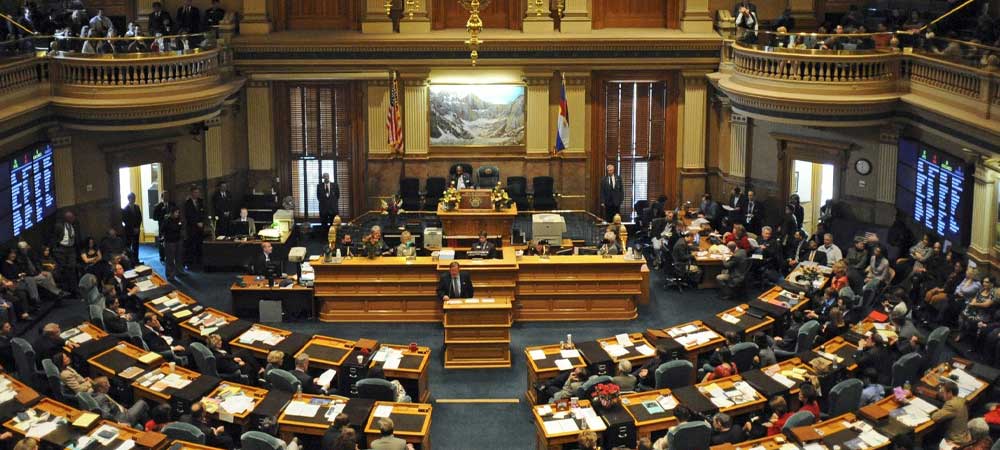- Colorado has not heard a sports betting bill in Congress this year to date.
- State legislators suggest that mobile betting will be a chief consideration of any sports gambling legislation.
- Residents may get the final say, as sports betting seems targeted for public referendum either this year or in 2020.
DENVER – Despite many allusions to and discussions about sports wagering amongst the connected Colorado cognoscenti, there actually haven’t been any legalization measures proffered to date.
With only a month left to get ballot initiatives settled in the 2019 legislative session, time seems to be running out on legal sports betting in Colorado this year.
Nevertheless, House Majority Leader Alec Garnett (D-Denver) has hinted to local outlets that a last-minute plan could be put forth for consideration.
“But that could change tomorrow. It’s like weather in Colorado – it can change at any moment.”
So maybe not.
Nevertheless, Garnett says that efforts have been underway behind the scenes to get a comprehensive bill assembled and introduced before the end of the session.
“We’ve been working the last couple of months with stakeholders trying to build what a legal sports gambling framework would look like in Colorado.”
So far, the only bipartisan element of any potential sports wagering legislation is that mobile betting – i.e. wagering over the Internet via a smartphone or tablet – has to be included in the package.
It is difficult to say whether or not the casino operators in the state believe that mobile is a help or a hindrance to their operations. The reality is that it likely presents them with a mixed bag of benefits and detriments.
Colorado has 33 land-based commercial casinos, most of which are smaller, tourist-oriented venues peppered throughout the region. There is also a pair of tribal casinos to consider, both of which operate under compact agreements with the state.
While online, mobile wagering is clearly what the people want (and also represents the highest “ROI” for the government in terms of tax revenue), smaller venues might be interested in pushing for physical exclusivity to sports betting in order that foot traffic is increased. The tribes may also be angling for special considerations per their compacts.
At the end of the day, whichever group or groups can make the best economic argument(s) are the ones that will likely win out.
Colorado Legislators Prefer A Referendum
The last-minute nature of the alleged forthcoming sports betting legislation is due to the fact that such represents the timeframe for getting the initiative onto a ballot for the November elections.
That isn’t technically the final deadline, as most Colorado officials believe that the state could simply rewrite a small section of its criminal code to legalize sports gambling. Even Attorney General Cynthia Coffman has issued an opinion that sports wagering does not legally fall under the scope of gambling.
However, state lawmakers seem reticent to go that route and would rather put the issue of gambling expansion to the public. One reason for this is that gambling expansion has lately proved unpopular in the state.
In 2014, a ballot measure to expand casino gaming to Colorado racetracks was put to a statewide vote. This lost, with wholly 70% of residents voting in opposition.
That said, sports wagering is now a mainstream issue nationwide, in a way that traditional casino gaming has rarely been. The tide of public opinion is absolutely turning.
To that point, it’s not altogether unlikely (or unreasonable) that the state defers on getting sports betting in Colorado out the door altogether in 2019. This would allow the initiative to garner maximum reach on the 2020 November ballots, where record voter turnout is expected for the upcoming Presidential elections.

